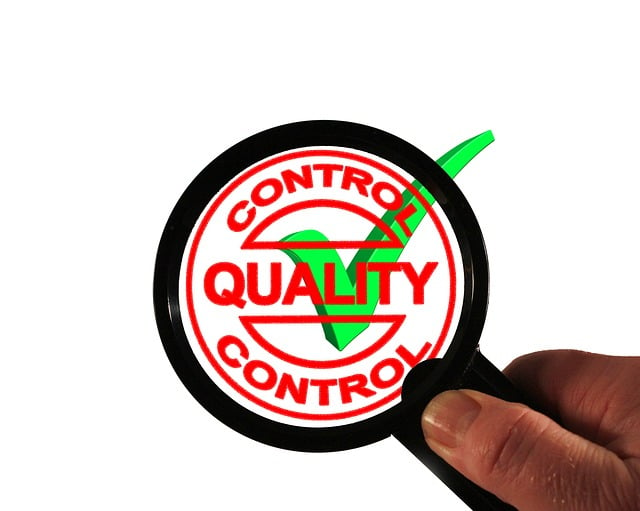Mold disclosure laws protect homebuyers by mandating transparency regarding potential mold issues in properties, crucial for preserving home value. Sellers must disclose known mold problems to buyers, empowering them with information for informed decisions. Adhering to these guidelines prevents disputes, costly repairs, and ensures a smoother transaction process. Effective mold inspection by certified professionals is vital for maintaining this transparency, safeguarding homebuyers, and upholding market integrity. Non-compliance carries legal risks, damaging both the seller's reputation and market trustworthiness.
In today’s real estate market, understanding mold disclosure laws is crucial for both buyers and sellers. These regulations aim to protect homebuyers by ensuring transparency regarding mold issues in properties, ultimately preserving and even enhancing home value. This article guides you through the significance of these laws, the legal responsibilities of home sellers, effective inspection practices, and the long-term benefits of compliance. By adhering to these standards, sellers can foster trust, attract buyers, and ensure a smooth transaction.
- Understanding Mold Disclosure Laws: Why They Exist and Their Impact on Home Value
- The Legal Obligations of Home Sellers: What You Need to Know Before Listing Your Property
- Effective Mold Inspection and Disclosing Practices for Ensuring Transparency
- Protecting Buyers and Maintaining Market Trust: The Long-Term Effects of Mold Disclosure Compliance
Understanding Mold Disclosure Laws: Why They Exist and Their Impact on Home Value

Mold disclosure laws are in place to protect homebuyers and ensure transparency regarding potential mold issues within a property. These regulations have emerged due to the significant impact that hidden mold problems can have on both the health of occupants and the overall value of a home. When mold, such as black mold or other harmful varieties, goes undetected and untreated, it can cause extensive damage to buildings and pose serious health risks.
The existence of these laws underscores the importance of disclosing any known mold issues to potential buyers. By doing so, sellers enable homebuyers to make informed decisions about purchasing a property. This transparency is crucial for maintaining and protecting home value, as buyers are less likely to overpay for a property they believe may have hidden or ongoing mold problems that require costly remediation.
The Legal Obligations of Home Sellers: What You Need to Know Before Listing Your Property

When it comes to selling your home, transparency is key. Home sellers have a legal obligation to disclose any known issues that could impact a buyer’s decision and ultimately affect the property’s value. This includes potential hazards such as mold, which can significantly decrease the home’s marketability and desirability.
In many jurisdictions, there are specific laws and regulations in place that require sellers to reveal any history of water damage or mold growth. Failure to disclose these issues could lead to legal repercussions and even financial penalties. Sellers must be proactive in inspecting their properties for signs of mold and addressing them promptly to avoid any disputes or costly repairs down the line. Being upfront about potential problems ensures a smoother transaction process and helps protect both the seller and buyer from unforeseen complications related to mold.
Effective Mold Inspection and Disclosing Practices for Ensuring Transparency

Effective mold inspection is a key practice for ensuring transparency in real estate transactions, especially when it comes to disclosing potential issues that could impact a home’s value. Home sellers are responsible for providing accurate information about any known mold problems within the property. This includes conducting thorough inspections by certified professionals who can identify hidden mold growth and assess its severity. By following these rigorous inspection practices, sellers can ensure they provide buyers with comprehensive disclosures, setting a strong foundation for trust and transparency.
Moreover, open communication is vital during the disclosure process. Sellers should document any previous incidents of mold, including the extent of the issue, the methods used to address it, and any ongoing precautions taken to prevent future occurrences. This level of detail allows buyers to make informed decisions regarding the home’s condition and potential costs for remediation, ensuring a clear understanding of the property’s current state in terms of mold and its impact on the overall home value.
Protecting Buyers and Maintaining Market Trust: The Long-Term Effects of Mold Disclosure Compliance

Mold disclosure laws are in place to protect homebuyers and ensure market trust, which has significant long-term effects on home value and the real estate market as a whole. By mandating that sellers reveal any mold issues present in a property, buyers can make informed decisions and avoid potential health risks. This transparency fosters trust between buyers and sellers, knowing that all relevant information is being disclosed accurately.
Non-compliance with mold disclosure regulations can lead to legal repercussions for home sellers and damage the market’s reputation. Buyers who discover undisclosed mold problems may take legal action, which could result in costly settlements or even the sale falling through. Consequently, adhering to these laws becomes a crucial aspect of responsible selling, ensuring a healthy and trustworthy real estate environment for all participants.














